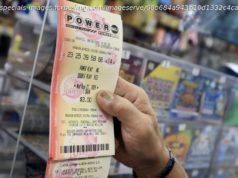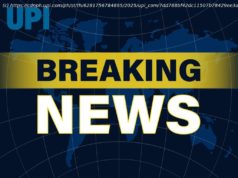Son of Equatorial Guinea leader sentenced for embezzlement
A French court on Friday handed the son of Equatorial Guinea’s president a suspended sentence of three years in prison for embezzling millions in public money, in the first of several planned trials in France of foreign figures allegedly thriving on ill-gotten gains.
Teodoro Nguema Obiang Mangue, his country’s second vice president, was accused of spending millions of dollars allegedly linked to corruption, embezzlement and extortion in his oil-rich African nation to feed his opulent lifestyle of fast cars, designer clothes, works of art and high-end real estate.
The court also handed him a suspended fine of 30 million euros ($35 million), and ordered that all goods seized during the investigation should remain confiscated.
Obiang, who did not attend the trial, denied the charges and his lawyer, Emmanuel Marsigny, accused France of meddling in Equatorial Guinea’s domestic affairs.
«I’ve rarely seen such justification for a decision that defies French and international laws,» Marsigny said. «It goes as far as denying our client’s role as vice-president for international affairs. It is a political decision. Of course, we will look into the details of it and consider all possible appeals.»
Obiang’s trial came after two non-governmental organizations targeting corruption and an association of Congolese citizens living abroad filed a lawsuit in France nearly 10 years ago against leaders in nearly a half-dozen African countries, including the late Gabon president Omar Bongo, alleging that they used state funds during or after their tenures to buy properties and luxury goods in France.
Obiang, 48, used millions of dollars in public money to stay in Parisian palaces and later purchased a mansion on one of the capital’s most sought-after avenues. The defense said the mansion serves as Equatorial Guinea’s embassy. The International Court of Justice ruled that France must treat the mansion as Equatorial Guinea’s diplomatic mission but gave the green light for the trial, despite Obiang’s claims of diplomatic immunity.
According to court documents, Obiang bought up to 15 cars in France for 5.7 million euros and once splashed nearly 20 million euros at an art auction. A governess and others employed by him in Paris told investigators that their boss came to France with suitcases full of cash and paid mainly in cash for luxury goods.
Representing Transparency International, which helped bring the case, lawyer William Bourdon praised the court for issuing a «historic verdict.»
«It is the beginning of the end for this rule of impunity and immunity that these kleptocrats imagined was eternal and universal,» Bourdon said. «This court, with independence and courage, clearly states that the counts of laundering were made possible because of a form of tolerance at three levels. The tolerance of the Societe Generale bank. The tolerance of the Bank of France. The tolerance of French authorities.»
The case highlighted the well-known corruption and mismanagement of the economy of Equatorial Guinea and the dramatic gap between the privileged ruling class of the central African country and much of its population, which thrives mainly on subsistence farming.
The former Spanish colony is run by Africa’s longest-serving president and Obiang’s father, Teodoro Obiang Nguema Mbasogo.
———
Associated Press journalists Alex Turnbull and Nicolas Garriga contributed.






